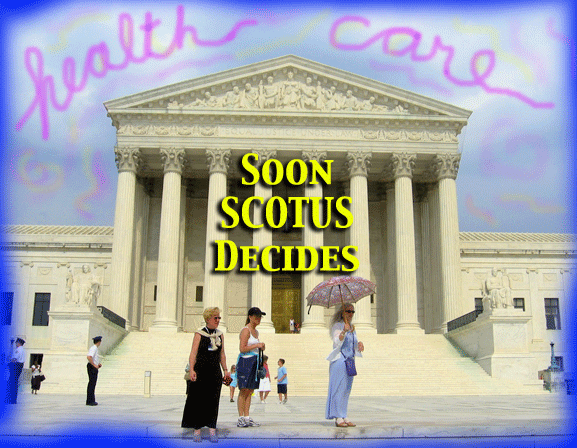
On Tuesday night, March 13, two weeks before the U.S. Supreme Court hears oral arguments on the constitutionality of the Affordable Care Act—aka “Obama Care—The California Endowment and a pile of distinguished law schools are bringing together a bipartisan mix of hot shot legal minds and policy experts to hear and argue the case that will decide the health status of millions.
The event runs from 6-7:30 p.m. (with a reception following) and will be held at The California Endowment- Yosemite Hall, 1000 North Alameda St, Los Angeles, CA 90012
Behold the list of petitioners, respondents and justices:
RESPONDENT:
Theodore J. Boutrous, Jr., Partner, Gibson, Dunn & Crutcher, LLPPETITIONER:
Kathleen M. Sullivan, Partner, Quinn Emanuel Urquhart & Sullivan, LLPJUSTICES:
Vikram Amar, Associate Dean, UC Davis
Hon. Gray Davis, Former Governor, State of California
Daniel Philip Kessler, Professor of Law, Stanford University and Senior Fellow, Hoover Institution
Thomas E. Lorentzen, President, Health Approaches, and Former Regional Director, U.S. Department of Health & Human Services
Rachel F. Moran, Dean, UCLA School of Law
Hon. Carlos R. Moreno, Former Associate Justice, California Supreme Court
Thomas A. Saenz, President and General Counsel, Mexican American Legal Defense and Educational Fund
Hon. Deanell Reece Tacha, Dean, Pepperdine University, and Former Circuit Judge, 10th Circuit U.S. Court of Appeals
Judge Alex Ferrer, Host of Judge Alex; Former Florida Circuit Court Judge
Cool, right?
The Cal Endowment has also filed an Amicus Brief with SCOTUS, which is summarized here, with the full brief here.
If you want to attend you must RSVP: (323) 892-2080
But it will fill up fast, so if you can’t attend, or if the event is already full by the time you inquire, you can also listen to a live broadcast here.
Or follow the Twitter stream at #ACA_mc (which you should do anyway, whether you’re there or not, as it will provide the Greek chorus, so to speak.
HERE’S THE DEAL: Where ever you stand on the health care issue, the outcome will be of consequence, So you may as well become well informed on the challenge, legally speaking.
With this in mind, here are a couple of stories (below) to get you started:
CHIEF JUSTICE ROBERTS’ BIG CASE
*On Sunday, the NY Times Adam Liptak wrote about how and why this will be the signature case for Chief Justice Roberts and what kinds of choices Roberts will have before him as he and the rest of the Supremes hear the arguments.
Here’s how it opens:
When Chief Justice John G. Roberts Jr. takes his usual center seat on the Supreme Court bench on March 26, he will begin presiding over an extraordinary three days of arguments that will determine the fate of President Obama’s sweeping health care law.
The decision in the case, expected by June, will have practical consequences for tens of millions of Americans without health insurance, and it may affect Mr. Obama’s re-election chances.
It will also shape, if not define, the chief justice’s legacy.
MEET THE VERY, VERY SMART PAUL CLEMENT: THE CONSERVATIVES’ MAIN GUY WITH THE SUPREMES
The Washington Post profiles attorney Paul Clement, 45, who will be handling the case against the health care law, and whom Ken Starr calls the the best advocate of his generation.
Here’s a clip:
When Paul Clement stands in front of the Supreme Court’s nine justices to argue a case, the effect is akin to watching a game of speed chess, only speed chess contested on nine different boards against nine relentless players. Clement addresses all the boards at once. He’ll make a rhetorical move on one justice here, only to find another skeptical justice requiring attention over there — he has arguments tailored for the court’s fence-sitters especially.
If the justices have anything in common during an oral argument at the court, it is a willingness to express in-your-face sarcasm for a lawyer’s weak gambit. But when Clement, a Republican and former U.S. solicitor general, is on his game, he is a grandmaster, conservative and liberal lawyers agree.

It’s going to take a lot of twisting for anyone to support the insurance mandate as being Constitutional. The 11th Court of Appeals got it right.
The President just can’t keep switching between whether the mandate is a tax in one case but not another, as it suits him with voters and in court. Administration Now Says Individual Mandate Is a “Tax”
And, according to the wording in the act, if any one part of Obamacare is unconstitutional, then the entire act is voided.